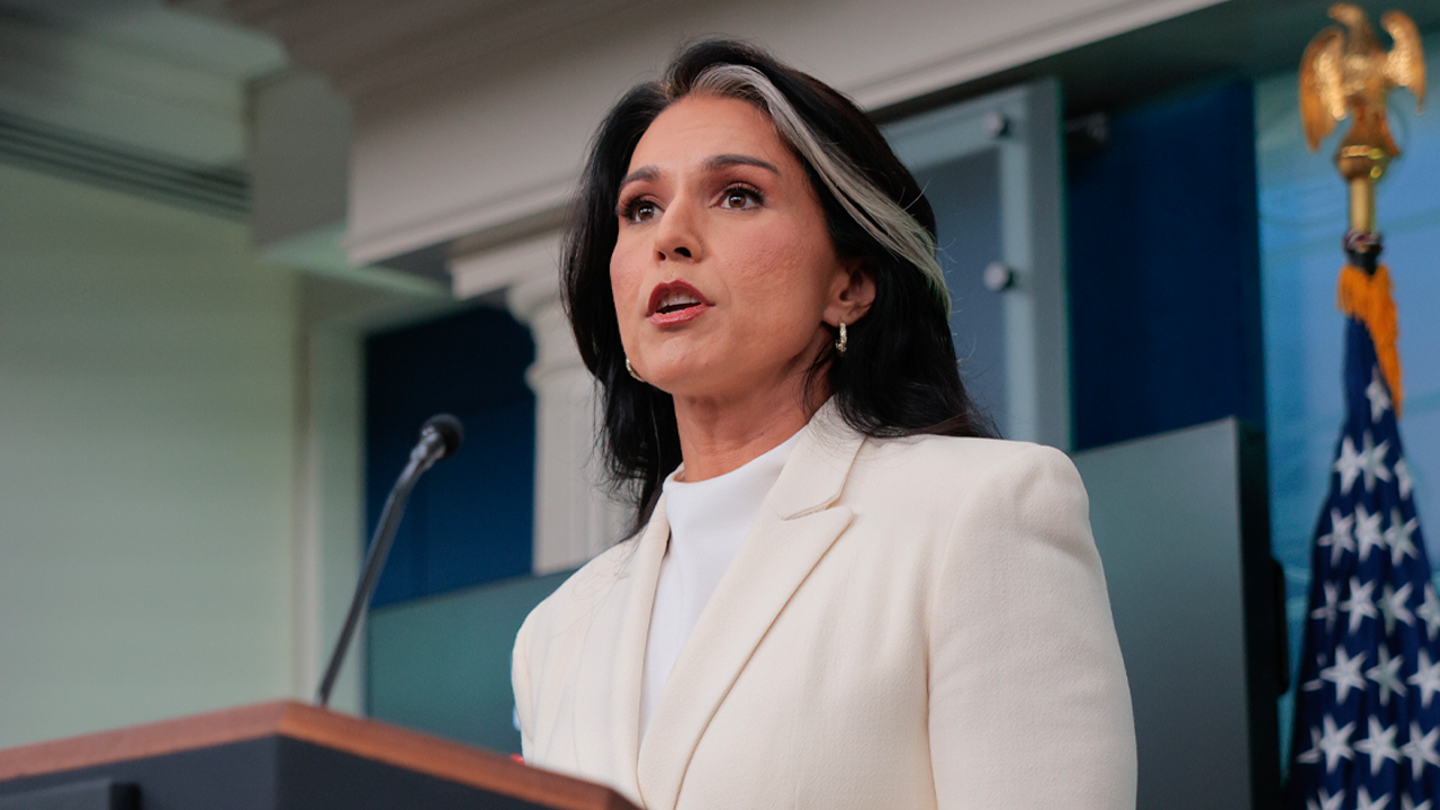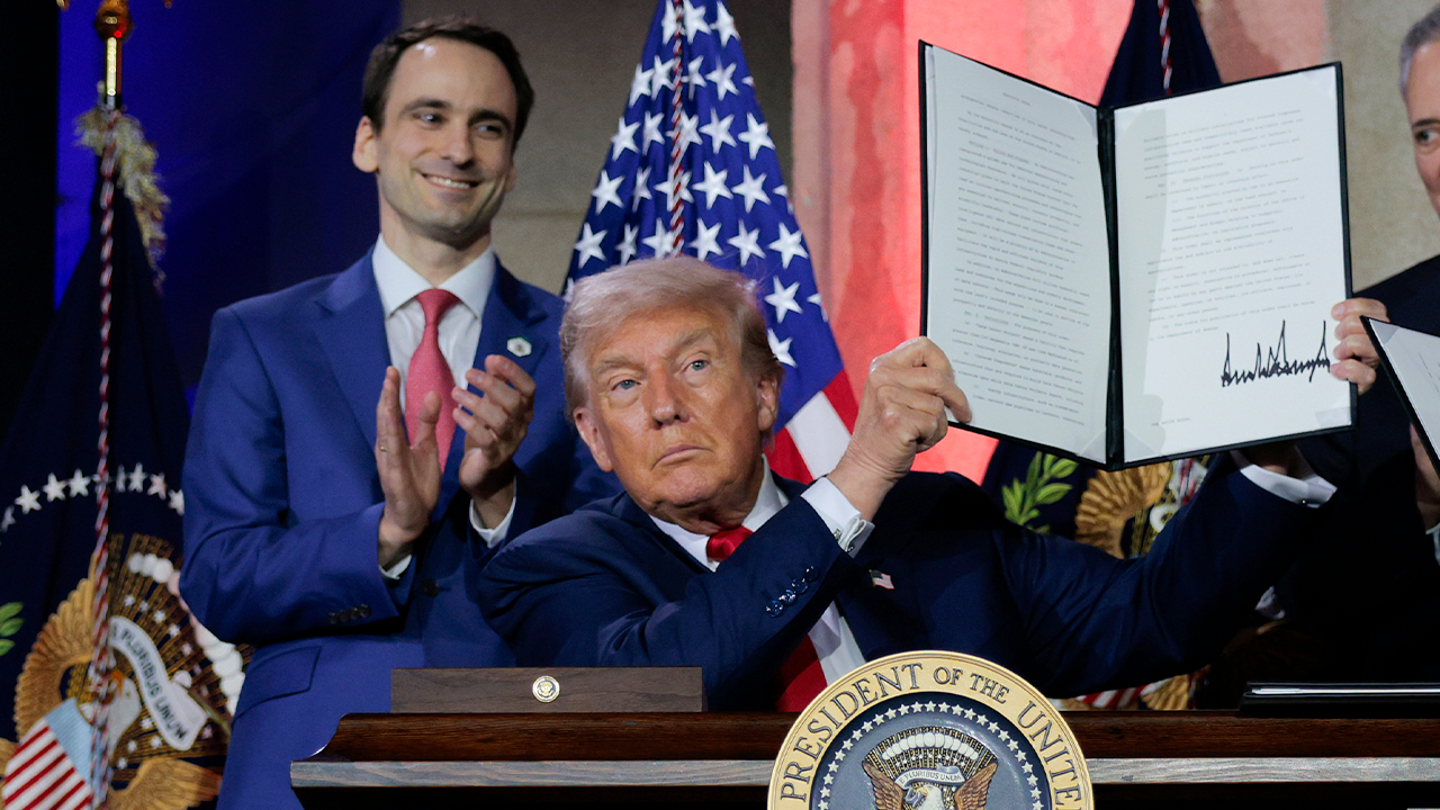
NFL rules analyst defends quick review of controversial Broncos interception: 'Want to move the game along'
Entities mentioned:
- Walt Anderson: Professional pride, Duty, Loyalty
- Sean McDermott: Competitive spirit, Moral outrage, Justice
- NFL Officials: Efficiency, Control, Duty
- Ja'Quan McMillian: Competitive spirit, Determination, Recognition
- Brandin Cooks: Competitive spirit, Self-respect, Pride
Article Assessment:
Credibility Score: 75/100
Bias Rating: 55/100 (Center)
Sentiment Score: 35/100
Authoritarianism Risk: 30/100 (Generally Democratic)
Bias Analysis:
The article presents both sides of the argument, quoting officials and the aggrieved coach. However, it gives more space to McDermott's complaints, slightly tilting the narrative.
Key metric: NFL Game Officiating Efficiency
Let me tell you something, folks - this is RIDICULOUS! We've got a real championship-level controversy on our hands! The Broncos and Bills were locked in an overtime slugfest when BAM! - a game-changing interception call drops like a bombshell. Now, Walt Anderson is stepping up to the plate, defending this lightning-fast replay review. But I'm telling you right now, Coach McDermott is crying foul, and he's not backing down! This is fourth quarter, do-or-die stuff, and the officials are playing prevent defense with the rulebook. It's a high-stakes game of 'you make the call,' and the Bills feel like they've been hit with a cheap shot. The replay team might think they're running a two-minute drill, but McDermott wants a full replay booth huddle. This isn't just about one play - it's about the integrity of the game, and right now, it feels like we've got refs trying to beat the shot clock instead of getting the call right. That's not championship mentality, that's a fumble in crunch time!

College football fans fume after CBS abruptly cuts off Gary Danielson's broadcast farewell
Entities mentioned:
- Gary Danielson: Professional pride, Legacy, Recognition
- CBS: Control, Efficiency, Obligation
- College football fans: Loyalty, Indignation, Recognition
Article Assessment:
Credibility Score: 75/100
Bias Rating: 55/100 (Center)
Sentiment Score: 30/100
Authoritarianism Risk: 20/100 (Strongly Democratic)
Bias Analysis:
The article presents a balanced view of the incident, quoting multiple sources including fan reactions and official statements. It leans slightly right due to its source (Fox News) but maintains a relatively neutral tone in reporting the events.
Key metric: Viewer Satisfaction
Let me tell you something - this story is RIDICULOUS! CBS just committed a MAJOR FUMBLE in the final seconds of Gary Danielson's illustrious career! Fans are LIVID, and rightfully so! This is like cutting off a Hall of Fame induction speech or interrupting the final lap of a legendary driver's last race! Danielson has been the voice of college football for nearly two decades, calling plays like a seasoned quarterback, and CBS just sacked him on his own goal line! The network's clock management was ABYSMAL, leaving fans feeling like they've been robbed of a proper overtime celebration. This is a TEXTBOOK example of how NOT to handle a champion's farewell. I'm telling you right now, CBS needs to get back in the film room and review this botched play, because they've just turned what should have been a victory lap into a major penalty!

Judge rules Utah’s congressional map must be redrawn for the 2026 elections
Entities mentioned:
- Utah Legislature: Power, Control, Self-preservation
- Judge Dianna Gibson: Justice, Duty, Righteousness
- Independent Commission: Fairness, Duty, Influence
- Lt. Gov. Deidre Henderson: Duty, Professional pride, Efficiency
- Republican lawmakers: Power, Self-preservation, Control
- Democratic Party: Power, Competitive spirit, Influence
- Donald Trump: Power, Influence, Control
Article Assessment:
Credibility Score: 75/100
Bias Rating: 55/100 (Center)
Sentiment Score: 40/100
Authoritarianism Risk: 30/100 (Generally Democratic)
Bias Analysis:
The article presents a relatively balanced view, including perspectives from both Republican and Democratic sides. While it leans slightly towards emphasizing the impact on Republican control, it also provides context on national trends and actions in other states.
Key metric: Electoral Competitiveness
As a social scientist, I analyze that this ruling significantly impacts electoral competitiveness in Utah and potentially nationwide. The court's decision to require redrawing of Utah's congressional map challenges the existing power structure, potentially shifting the balance in favor of more competitive districts. This could have ripple effects on national politics, as it may influence the Republican majority in the US House. The ruling also underscores the tension between legislative power and voter-initiated reforms, highlighting the ongoing struggle to prevent partisan gerrymandering. The potential delay in implementation due to appeals reflects the strategic maneuvering often seen in redistricting battles, which can have long-lasting impacts on political representation and party control.

DOGE put Americans’ Social Security records at risk, whistleblower says
Entities mentioned:
- Department of Government Efficiency: Efficiency, Duty, Professional pride
- Social Security Administration: Security, Duty, Professional pride
- Charles Borges: Duty, Righteousness, Security
- Government Accountability Project: Justice, Transparency, Duty
- Office of Special Counsel: Justice, Duty, Security
- Trump administration: Power, Control, Influence
- Elon Musk: Ambition, Influence, Control
- DOGE team: Efficiency, Control, Influence
- Supreme Court: Justice, Duty, Control
- Nick Perrine: Professional pride, Security, Duty
Article Assessment:
Credibility Score: 75/100
Bias Rating: 45/100 (Center)
Sentiment Score: 25/100
Authoritarianism Risk: 35/100 (Generally Democratic)
Bias Analysis:
The article presents multiple perspectives, including the whistleblower, the agency, and concerned groups. It maintains a neutral tone while reporting on a controversial issue, balancing criticism with official responses.
Key metric: Data Security and Privacy
As a social scientist, I analyze that this article highlights a significant breach in data security practices within a major government agency, potentially affecting millions of Americans. The whistleblower's complaint suggests a systemic failure in protecting sensitive personal information, which could have far-reaching consequences for individual privacy and national security. The involvement of private sector entities (DOGE team) in accessing government data raises questions about the balance between modernization efforts and data protection. This situation reflects broader tensions between technological advancement, government efficiency, and the safeguarding of personal information in the digital age. The response from the Social Security Administration appears to downplay the severity of the issue, which may indicate a disconnect between internal perceptions of security and actual vulnerabilities. This incident could lead to decreased public trust in government institutions and their ability to protect citizens' data, potentially impacting social cohesion and civic engagement.

Gabbard launches 'ODNI 2.0,' with plan to cut workforce by 40%
Entities mentioned:
- Tulsi Gabbard: Determination, Righteousness, Professional pride
- ODNI (Office of the Director of National Intelligence): Efficiency, Security, Duty
- President Trump: Leadership, Control, Security
- Intelligence Community: Duty, Security, Professional pride
Article Assessment:
Credibility Score: 65/100
Bias Rating: 70/100 (Lean Right)
Sentiment Score: 65/100
Authoritarianism Risk: 55/100 (Mixed/Neutral)
Bias Analysis:
The article leans right, presenting the ODNI restructuring in a positive light and emphasizing Trump's leadership. It primarily presents the administration's perspective without significant counterpoints or critical analysis.
Key metric: Government Efficiency and National Security
As a social scientist, I analyze that this article describes a significant restructuring of the Office of the Director of National Intelligence (ODNI) under the leadership of Tulsi Gabbard. The transformation, dubbed 'ODNI 2.0', aims to address issues of inefficiency, politicization, and abuse within the intelligence community. The proposed changes, including a 40% workforce reduction and $700 million in annual savings, represent a major shift in how U.S. intelligence operations are conducted. This restructuring could have substantial impacts on national security processes, government spending, and the overall effectiveness of intelligence gathering and dissemination. The focus on eliminating politicization and rebuilding trust suggests an attempt to address perceived failures in the intelligence community's recent history. However, such dramatic changes may also lead to short-term disruptions in intelligence operations and potential resistance from within the organization.

Social Security stronger under Trump, critics pushing ‘false’ narrative, commissioner says
Entities mentioned:
- Donald Trump: Power, Legacy, Self-preservation
- Frank Bisignano: Loyalty, Professional pride, Righteousness
- Democrats: Moral outrage, Control, Unity
- Social Security Administration: Duty, Efficiency, Security
- Joe Biden: Competitive spirit, Control, Legacy
Article Assessment:
Credibility Score: 55/100
Bias Rating: 75/100 (Lean Right)
Sentiment Score: 70/100
Authoritarianism Risk: 35/100 (Generally Democratic)
Bias Analysis:
The article heavily favors the Trump administration's perspective, primarily quoting the Social Security commissioner appointed by Trump. It lacks opposing viewpoints or independent expert analysis, presenting a one-sided narrative that aligns with right-leaning political views.
Key metric: Social Security System Efficiency
As a social scientist, I analyze that this article presents a defense of the Trump administration's management of Social Security, countering criticisms from Democrats. The key points revolve around improved efficiency through technology adoption, reduced wait times, and cleared backlogs. The commissioner, Frank Bisignano, argues that critics are pushing a false narrative due to political motivations. The article suggests a significant transformation in Social Security operations, moving from a check-based system to a more technologically advanced one. However, the strong partisan tone and lack of opposing viewpoints raise questions about the balanced representation of the issue. The emphasis on operational improvements without addressing long-term sustainability concerns presents a potentially incomplete picture of Social Security's overall health.

Social Security is 90 years old. We are making it smarter, better, faster under Trump
Entities mentioned:
- Donald Trump: Loyalty, Power, Legacy
- Social Security Administration: Efficiency, Duty, Professional pride
- Commissioner: Ambition, Determination, Recognition
Article Assessment:
Credibility Score: 55/100
Bias Rating: 75/100 (Lean Right)
Sentiment Score: 85/100
Authoritarianism Risk: 35/100 (Generally Democratic)
Bias Analysis:
The article leans right, consistently praising Trump administration efforts without presenting alternative viewpoints or criticisms. The language used is overwhelmingly positive towards current leadership, indicating a clear partisan slant.
Key metric: Social Security System Efficiency
As a social scientist, I analyze that this article presents a highly positive view of the Social Security Administration's progress under the Trump administration. The Commissioner highlights various improvements in service delivery, wait times, and technological advancements. The article emphasizes modernization efforts and a commitment to future generations, suggesting a focus on long-term sustainability of the Social Security system. However, the overwhelmingly positive tone and lack of mention of challenges or criticisms raises questions about the balanced nature of the information presented.

Trump admin unveils groundbreaking tool 'supercharging' gov't efficiency to 'win the race' for AI dominance
Entities mentioned:
- Trump administration: Ambition, Competitive spirit, Power
- U.S. General Services Administration (GSA): Efficiency, Professional pride, Duty
- David Shive: Professional pride, Ambition, Duty
- Stephen Ehikian: Competitive spirit, Professional pride, Ambition
- David Sacks: Duty, Security, Control
- Josh Gruenbaum: Competitive spirit, Efficiency, Professional pride
- OpenAI: Ambition, Influence, Recognition
- Anthropic: Competitive spirit, Recognition, Influence
Article Assessment:
Credibility Score: 65/100
Bias Rating: 70/100 (Lean Right)
Sentiment Score: 75/100
Authoritarianism Risk: 45/100 (Mixed/Neutral)
Bias Analysis:
The article leans right, evidenced by its exclusive focus on the Trump administration's achievements and positive framing of their initiatives. The use of 'FIRST ON FOX' and reliance on administration officials for quotes without opposing viewpoints indicates a pro-Trump bias.
Key metric: U.S. Technological Competitiveness
As a social scientist, I analyze that this article highlights the Trump administration's aggressive push to establish U.S. dominance in artificial intelligence through government-wide implementation. The launch of USAi represents a significant step in operationalizing the administration's AI Action Plan, aiming to enhance government efficiency and maintain America's global technological leadership. This initiative could potentially accelerate AI adoption across federal agencies, potentially leading to improved service delivery and cost reductions. However, the rapid implementation of AI in government operations also raises questions about data security, privacy, and the potential for job displacement among federal workers. The emphasis on 'winning the race' for AI dominance reflects a competitive, nationalistic approach to technological advancement, which could have implications for international collaborations and global AI governance frameworks.

US court says Trump’s Doge team can access social security numbers and other sensitive data
Entities mentioned:
- Trump administration: Control, Power, Efficiency
- Department of Government Efficiency (Doge): Efficiency, Control, Power
- Unions: Self-preservation, Security, Privacy
- US appeals court: Duty, Justice, Obligation
- Donald Trump: Power, Control, Efficiency
- Elon Musk: Ambition, Influence, Efficiency
Article Assessment:
Credibility Score: 75/100
Bias Rating: 45/100 (Center)
Sentiment Score: 35/100
Authoritarianism Risk: 65/100 (Authoritarian Tendencies)
Bias Analysis:
The article presents a relatively balanced view, including perspectives from both sides of the issue. However, there's a slight lean towards emphasizing the concerns of the unions and potential privacy issues, which may indicate a subtle center-left bias.
Key metric: Government Efficiency and Transparency
As a social scientist, I analyze that this court decision represents a significant shift in the balance between government efficiency efforts and individual privacy concerns. The ruling allows the Trump administration's Doge team to access sensitive personal data, potentially impacting millions of Americans. This move towards centralized data access could lead to increased government efficiency, but it also raises serious privacy and security concerns. The court's decision suggests a prioritization of administrative streamlining over potential privacy risks, which could have long-term implications for how personal data is handled in government systems. The conflict between unions and the administration highlights the tension between workforce protection and government downsizing initiatives. This case also demonstrates the ongoing debate about the appropriate scope and power of unofficial government teams like Doge in accessing and utilizing sensitive information.

Sean Duffy details spat with Elon Musk over firing air traffic controllers, says cabinet must call shots
Entities mentioned:
- Sean Duffy: Professional pride, Duty, Self-preservation
- Elon Musk: Ambition, Influence, Efficiency
- Department of Transportation: Safety, Control, Duty
- Department of Government Efficiency (DOGE): Efficiency, Influence, Control
Article Assessment:
Credibility Score: 70/100
Bias Rating: 55/100 (Center)
Sentiment Score: 45/100
Authoritarianism Risk: 35/100 (Generally Democratic)
Bias Analysis:
The article presents a balanced view of the conflict, giving voice to Duffy's perspective while also acknowledging Musk's innovative reputation. However, there's a slight lean towards supporting Duffy's position, possibly due to the recent air tragedy mentioned.
Key metric: Transportation Safety and Efficiency
As a social scientist, I analyze that this article highlights a conflict between government efficiency and safety concerns in the transportation sector. The disagreement between Sean Duffy and Elon Musk represents a broader tension between innovative cost-cutting measures and maintaining critical safety standards. This incident, especially in light of the subsequent tragic plane crash, underscores the delicate balance required in managing public transportation systems. The article also touches on themes of bureaucratic power dynamics and the importance of established governmental processes in decision-making.